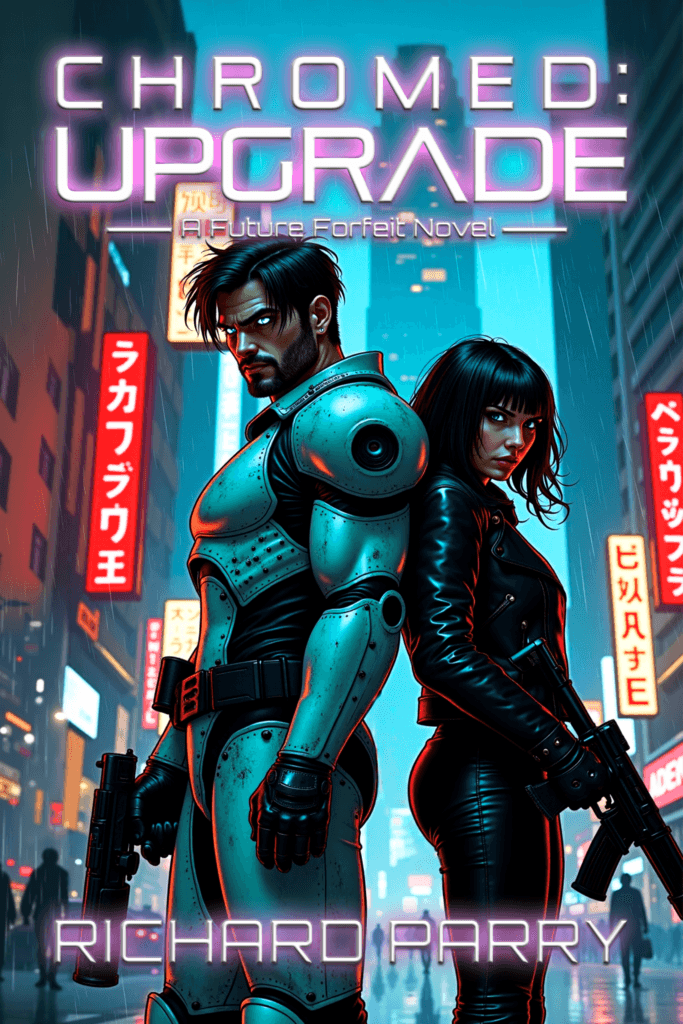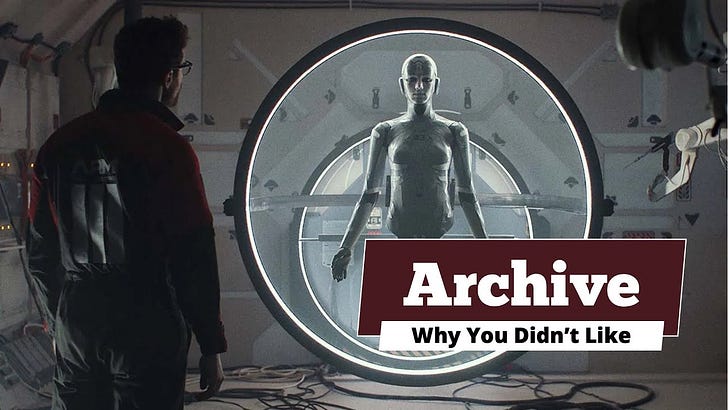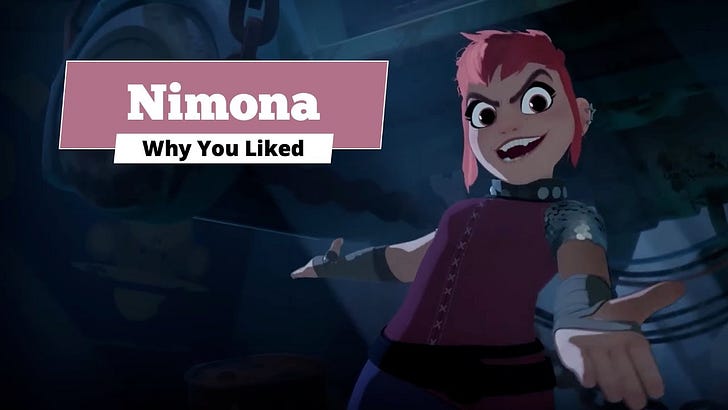Picture this: it's 2020. We've got electric cars, cloud computing, and phones now have more than one camera. Yet, somehow, the memo about 'it was all a dream' being cinematic kryptonite got lost in Gavin Rothery's spam folder before he made Archive.
There are unwritten rules in filmmaking. Rule number one is never kill the dog. Rule number two is don’t insult your audience, and it carries a couple of subclauses and riders. Right there in 2B, it says, “It was all a dream IS insulting your audience.”
Archive, written and directed by Gavin Rothery and starring Theo James and Stacy Martin, had every ingredient to be a sci-fi masterpiece right up my alley. It promises to explore the foundations of humanity through a predictive lens of AI and memory internment. It’s got dope cinematography and acting that’s off the chain.
But.
There are bold creative choices, and then there's deciding your sophisticated sci-fi flick, Archive, needs to crib ideas straight out of a student film from 1993. Spoilers: it wasn't brave. I don’t think it was blissful ignorance, either. I think it was the mark of a scriptwriter who got stuck on the last page.
Archive’s a 2020 film with a 1980s ending problem. Let’s investigate this cinematic felony.
The Seductive Premise
Archive follows researcher George on a fool’s quest to resurrect his dead wife, Jules, after a tragic car crash. It wasn’t just tragic because she died. It was tragic because she died badly; his memories are of shattered, bloody glass spread through broken metal and more broken bodies. We’re left a little grey on the details of the crash itself; George clearly doesn’t want to replay that through his mind daily, but can’t quite look away.
The marketing of the movie leaned into all of this. The trailer drips comeback tour Lazarus energy, the desire for eternal life and to live forever young and strong in a machine body. We know George is a driven man, and through the film we discover just how driven he is. The lines he’s crossed, and the rules he’s tempted to throw away. This man has lost everything—his wife, his career, his friends. He’s isolated, working at a remote Japanese research facility, and the only thing keeping him warm is the dying ember memories of his lost Jules.
George wants those embers to flare into an inferno. He’s willing to burn anyone and anything to get his wife back. It’s an enticing premise, a dark and ethically complex journey that should have become an all-time classic. And make no mistake, there’s some good shit here. The world that Rothery’s built is S-tier; his cinematography is full of bleak, stark lines, harsh beauty, and a monochromatic colourscape that mirrors George’s mind. We feel how cold it is to be him, and how unforgiving the world is to the demands of his quest.
The remote Japan facility is enticingly sci-fi but clearly breaking down. It reminds me of an earthy Nostromo; the starship in Alien was clearly huge leaps ahead of any technology we have now, but Weyland-Yutani wouldn’t put a bent copper down on maintenance, even if it saved crew lives. The evil psycho megacorps in Archive are WeyYu’s blood kin; George is forced to make his discoveries in an underfunded and mouldering lab that we both yearn to have access to, and pity him for having to put up with.
The movie’s also an SFX masterclass. You won’t be able to determine the seams between CGI, robotics, and prosthetics. This emphasis on presentation extends to the actors. Theo James imbues George’s Troubled Man™ with a sense of urgency and guilt. He’s got sins to make up for but he’s happy to keep on sinning. And Stacy Martin’s Jules makes our hearts break anew: there’s tension here in that we know the real Jules didn’t want to come back. The rebellion evident in their dialogue as her J3 version is a constant testing and reforming of trust. These combined faces of trust, betrayal, and love were absolutely astounding. We believed they would find a way through this. They had to, because of how they felt about each other.
There’s also an astounding emotional core to the movie, almost as if it was a new alloy forged from grief and obsession. George’s investment in the Jules variants of J1, J2, and J3—despite his flaws—makes us share his yearning for success at any cost. We see how he bends, then breaks to the dark side of his humanity. And J3 isn’t absent in emotional fallout; she has rage and anxiety just as she’s learning to breathe and live again.
When characters die in this movie, we feel it through how George and J3 react to it. George recognises his failings, and J3 wishes she’d been more present, more able to see the tidal wave that was coming. The message is clear: if we create life, the life has value whether it’s silicon or meat. We don’t have the right to play God, and yet… George must. He cannot rest until his task is done.
There’s a deeper mirror here that audiences of 2025 will find that was absent in 2020. Our current AI advancements are getting closer to what we see in Archive. While we can curse ChatGPT and demand Gemini gives us answers no matter what, soon we’ll be faced with a question: are these machines, or are they people? Is it right to feel for them? Is it right to do anything but feel for them? Can we yoke and enslave silicon minds, simply because we birthed them?
Where It All Went Wrong
Hopefully by this point you’re thinking, “Shit, Rich, I should see this dope-ass flick, it sounds amazing.”
Hold up, Tarzan.
The great conceit of Archive is the ending, which… eh. In a detail-free way, it was a slightly transformed version of ‘it was all a dream.’ There are lots of problems with this trope in general, but there are two clear ones in Archive’s case.
First, it’s completely unearned. We have no inkling of the true ending until the last fragment arrives. It feels rushed; we’re not allowed to rest for a beat on George and J3’s discoveries. It really felt like the writer wrote himself into a corner and couldn’t find the backspace key to reverse out.
The second and larger problem is the ending was a violation of trust and the viewer contract. The promise made to the audience was simple: George does bad shit and his wife gets to live. The real ending proves nothing he did mattered, but crucially, the emotional anguish we felt for those lost on his journey was a waste of time. I felt 100% cheated by the outcome of Archive; it made me actively hostile toward the memory of everything I’d just seen. The movie emotionally hijacks the viewer to no purpose. There’s no clever re-contextualisation here; it’s pure invalidation.
See, George lost nothing because it was all a dream.
The impact of what happened to J2, and J3’s subsequent sacrifice, is wasted potential. Rather than feeling like we’ve reached the ending of a hard and emotionally relevant movie, we instead got the monochromatic version of Nic Cage’s Next. It’s an emotional betrayal not because dreams are bad, but because of the depth of investment the film demanded. It’s a flaccid payoff to the hour and forty-nine minutes’ runtime I’ll never get back.
What Archive Could Have Been
There is a true power in the ethical questions Archive poses. The J2 storyline resonates: if we create life, aren’t we obligated to not be dicks to it? Well, it’s tricky stuff to work through, especially if it’s all a dream. The importance of the film’s questions about grief, sacrifice, and the nature of created consciousness is immolated on the pyre of an inept ending.
There are some alternative endings that would have honoured the narrative. If Jules died and George needed to live with his betrayal of J3, that would have been resonant. Or… what if J3 and Jules got to live in one shell, but decided to leave George on read for eternity because he was such a douche? There’s no need for a twist to land the plane here. There’s a more thematic payoff if Archive stuck to its own build-up and allowed Jules to reincarnate. It would have made the losses of J2 and J3 more poignant.
Hell, even a Rocky ending where George is unsuccessful but the journey mattered would be fine.
There’s a relationship between artist and art consumer that humans are exploring now more than ever before. With AI art, music, and literature on the rise, does it matter if the artist is silicon or meat? This is an ethical quandary the movie exposes but fails to hold on to because it was all a dream. The largest betrayal is around J2’s storyline. If someone has a disabled child, can they sacrifice its kidneys because a "normal" sibling needs them? These are powerful questions to frame in the context of AI being more human every day. Are we content to use AI as our virtual organ donors?
There’s a real missed opportunity here. See, to err is to be human. We don’t know what we don’t know, and we’re all just trying to do the best with what we’ve got. We don’t always get it right. That’s being the messy thing that’s us. An ending that honoured the gulf between our great desires and our capability, and nodded towards the harm we often do when seeking to touch the stars… that was the real message the film should have closed with.
The Broken Promise
I really wanted to like Archive. It’s got a sort of brutalist cyberpunk aesthetic and goes hard on asking questions we don’t have ready answers for. It’s not just that the movie looks good, or that the actors are knocking it out of the park. It’s that the movie gazes—unflinching—right back at us. The first two acts are unstoppable masterpieces. They build the audience’s expectation. For 90 minutes, I was on board.
But.
Archive sold us on a promise and a set of ethical quandaries that are ultimately wasted. It’s a betrayal of audience trust, especially because of how deeply and powerfully it dredges in the psyche on the nature of humanity. If we feel, are we real? If we speak about our pain, are we not human?
There was real and valuable emotional weight in the story and the questions it raised, and then… the ending happened. The film destroyed its own premise, and it did it right at the bedrock.
Let’s be clear. I’m not just saying it’s a weak ending. Plenty of movies survived a weak ending. It’s that it’s a broken promise from a narrative, thematic, and emotional standpoint. The ending is unearned. The violation of contract between artist and art consumer is absolute.
What did you think of Archive? Were you on team J2, or did you feel legs were optional? Let me know in the comments below. If you hate it-was-all-a-dream, press Like as if we’re siblings separated at birth.












